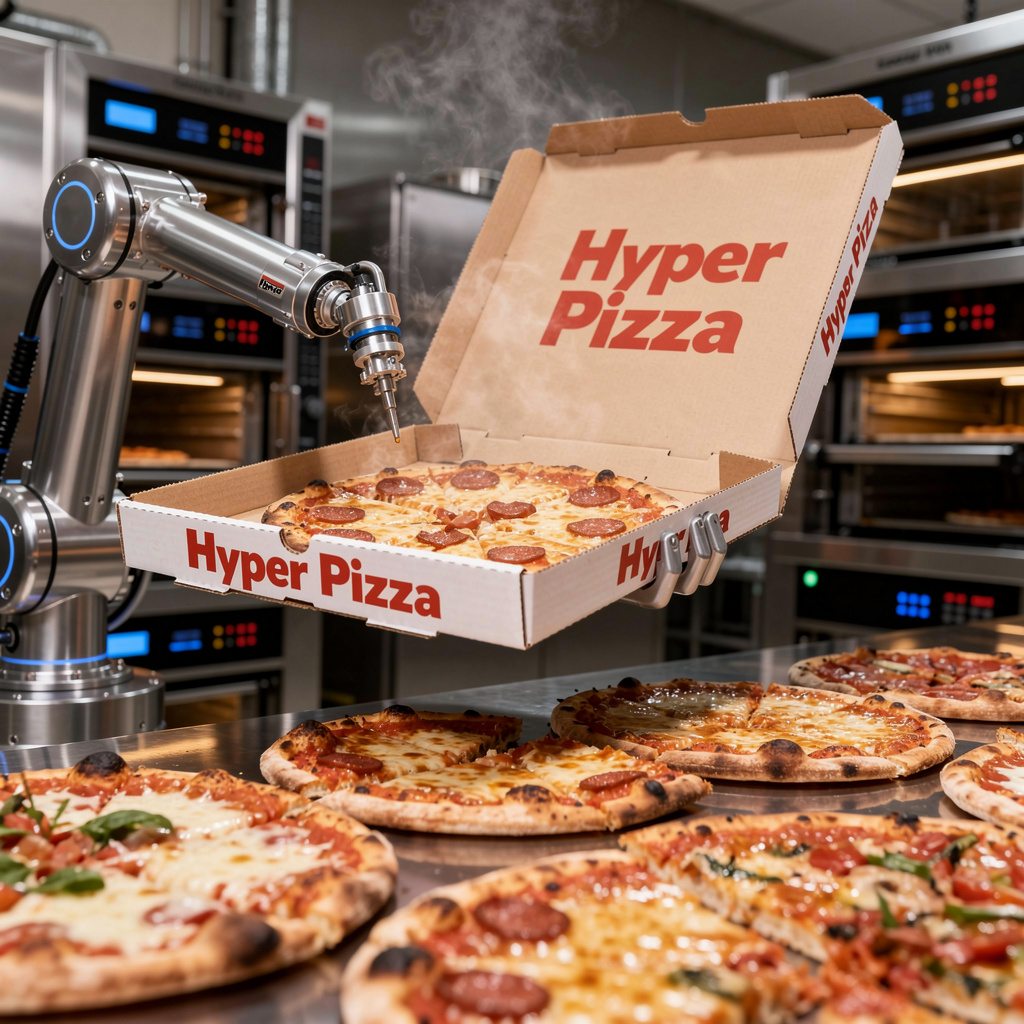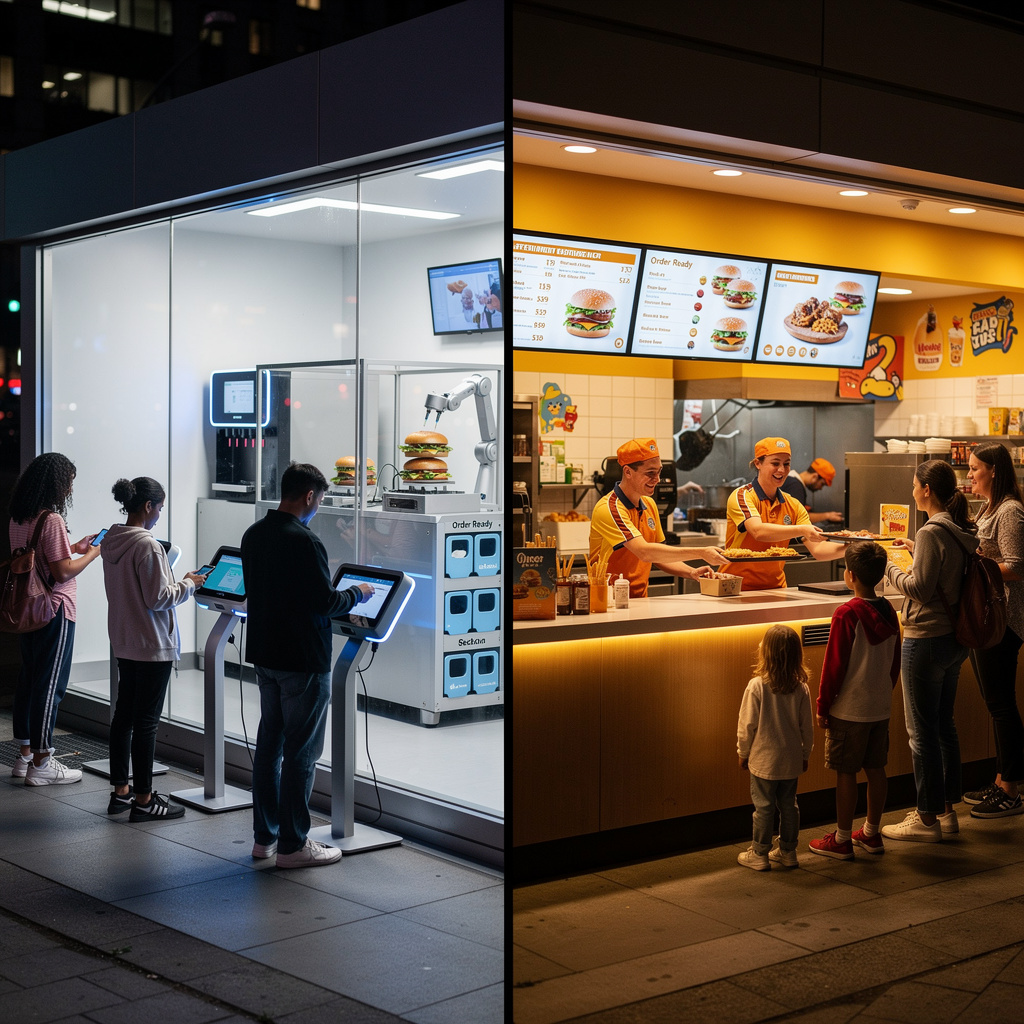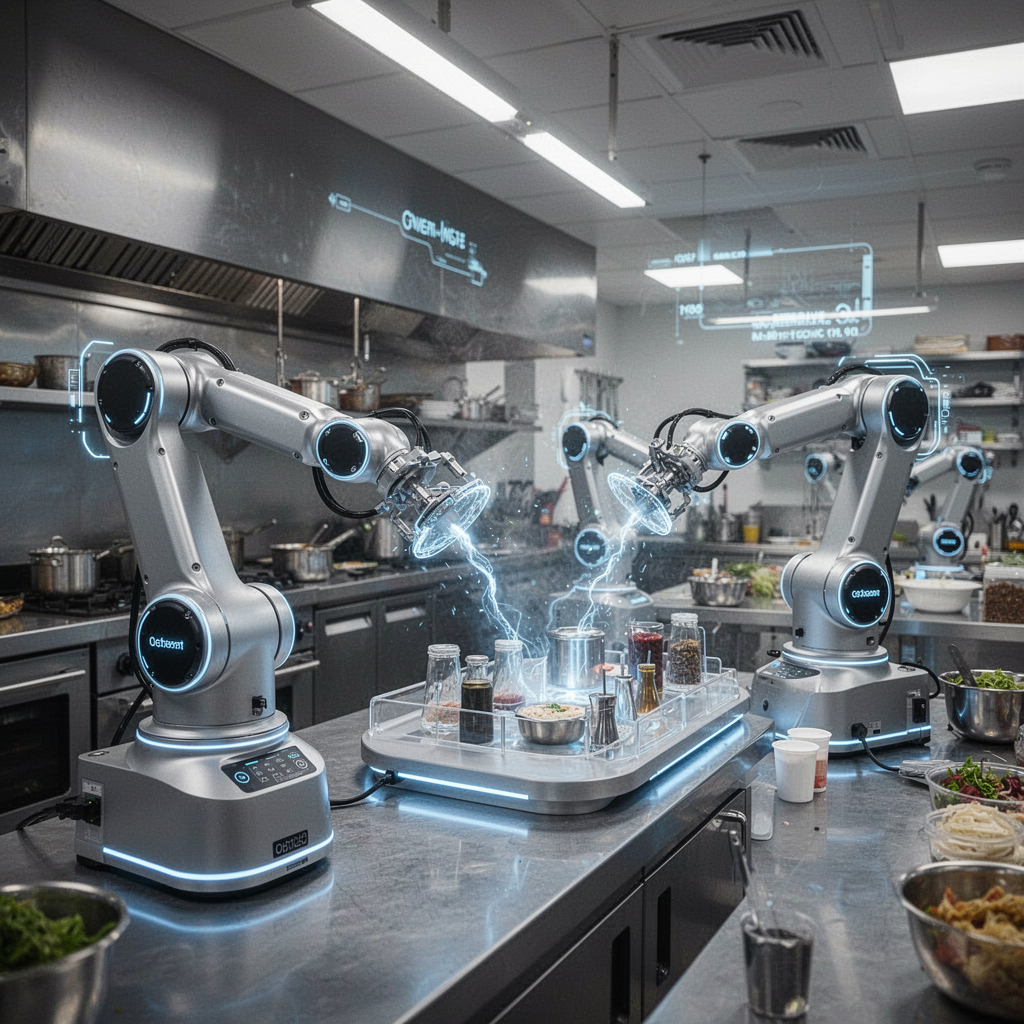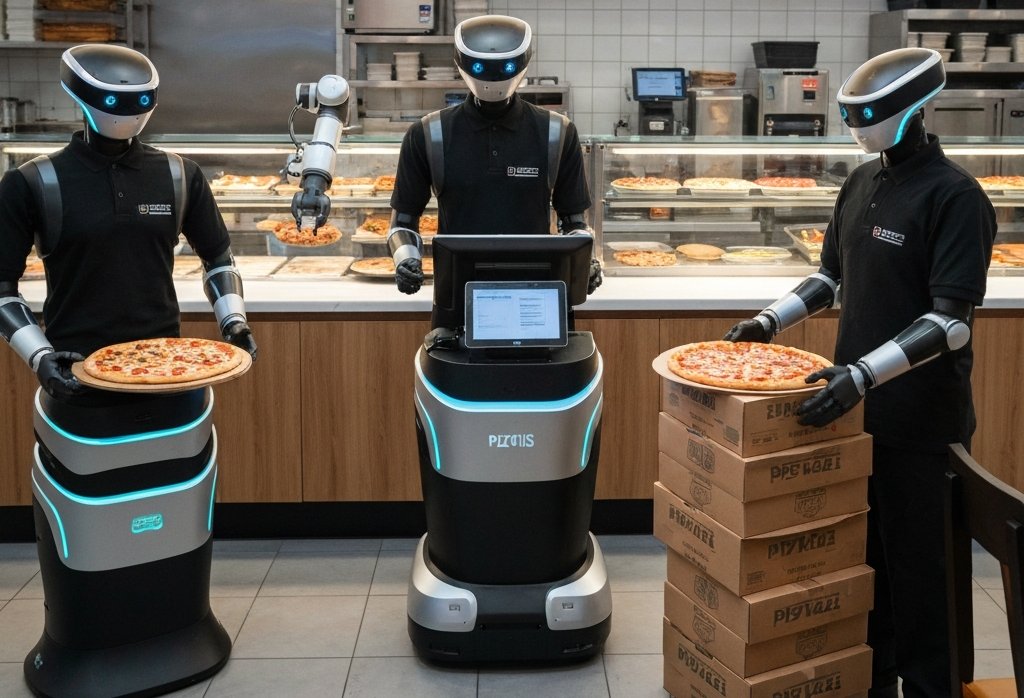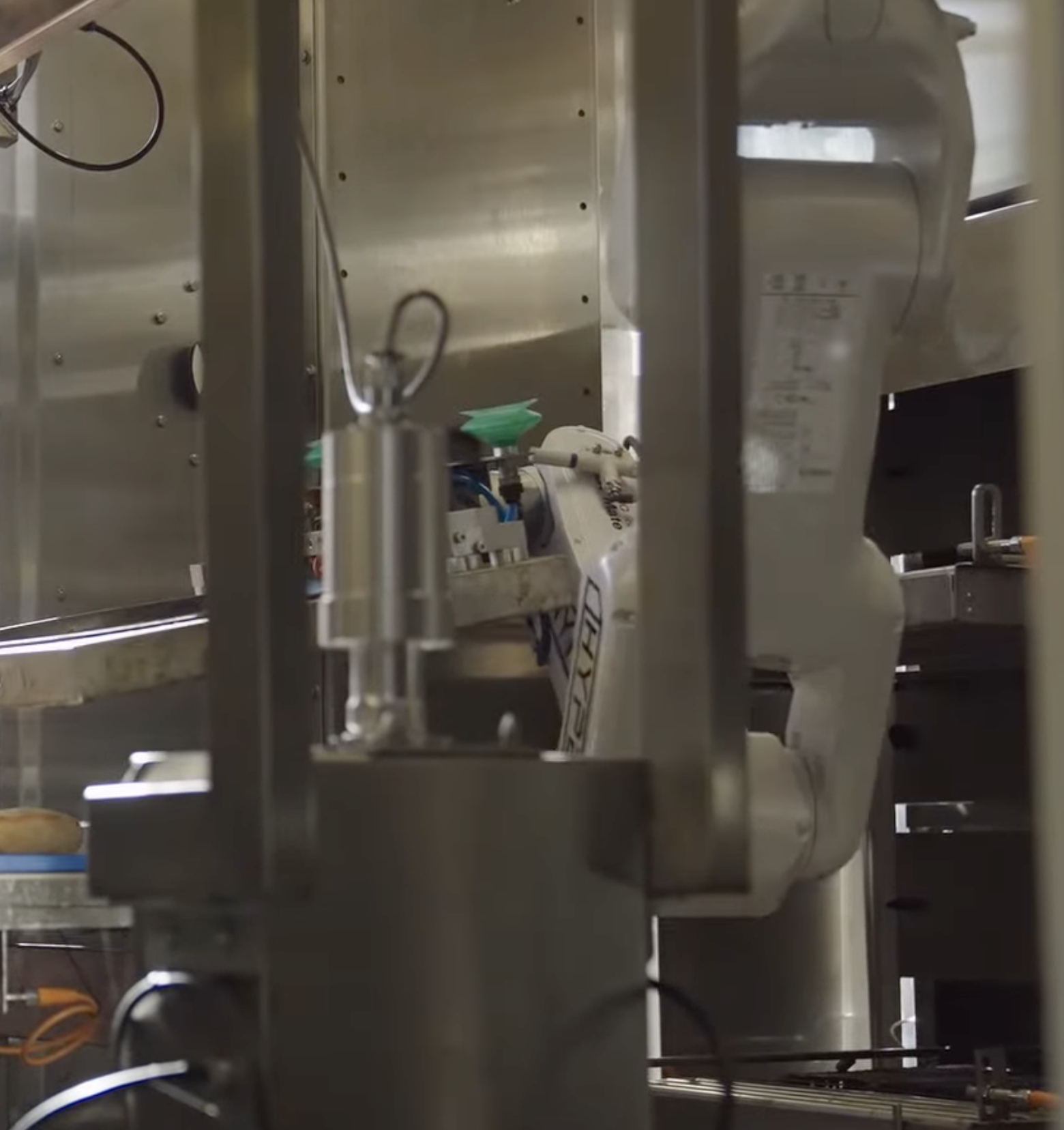Have you ever wondered what keeps the top fast food joints running smoothly despite labor shortages, rising demand, and the relentless push for speed and hygiene? The answer lies in a powerful alliance of robotics, artificial intelligence, and automation companies that have become indispensable to the fast food industry. These innovators are not just streamlining operations; they are redefining how food is prepared, delivered, and experienced.
In this article, you will discover the top 10 companies whose cutting-edge technologies are transforming fast food. From fully autonomous mobile kitchens to AI-powered robotic arms and autonomous delivery vehicles, these companies are solving critical challenges like labor shortages, operational inefficiencies, and food safety concerns. By the end, you will know which companies are setting the pace in fast food automation and why Hyper-Robotics stands out as a true leader in this space.
Here is what you can expect: first, a look at the criteria used to rank these companies, followed by a detailed rundown of each company’s unique contributions. Then, we’ll explore the broader impact these technologies have on the fast food industry and what you should consider if you’re thinking about adopting automation solutions.
Criteria for ranking the top fast food robotics and automation companies
To give you a clear and actionable snapshot, I ranked these companies based on several key factors:
– Innovation: How groundbreaking and unique their technology is, including AI integration and robotics design.
– Market impact: Their proven track record in fast food environments and partnerships with major brands.
– Scalability and ease of integration: How quickly and seamlessly their solutions can be deployed across multiple locations.
– Operational efficiency: The extent to which they improve speed, accuracy, and labor productivity.
– Sustainability and hygiene: Their contribution to reducing waste, enhancing food safety, and maintaining cleanliness.
– Security and reliability: Cybersecurity measures and robustness in high-demand settings.
With these criteria in mind, let’s dive into the companies you cannot afford to ignore.
1. Hyper-robotics
Hyper-Robotics is redefining what it means to automate fast food. Its fully autonomous, mobile fast-food restaurants operate inside 40-foot container units that require zero human intervention. Imagine a restaurant that can be deployed anywhere, running 24/7 with 120 sensors and 20 AI cameras monitoring every step of food preparation, retail, and delivery.
This plug-and-play model is a game-changer for fast food chains struggling with labor shortages and operational inconsistencies. Their cluster management algorithms allow multiple units to work in harmony, optimizing order fulfillment and reducing wait times. The system’s self-sanitary cleaning and temperature sensing ensure food safety and hygiene at levels unmatched by traditional kitchens.
Hyper-Robotics’ platform is cyber-protected and built from corrosion-free stainless steel, making it durable and sustainable. They have already proven their technology by rolling out fully automated kitchens capable of producing hundreds of orders per hour. If you want to see the future of fast food, Hyper-Robotics is leading the charge.
Learn more about their innovative approach on the [Hyper-Robotics official site](https://hyper-robotics.com).

2. Miso robotics
Miso Robotics is best known for Flippy, a robotic kitchen assistant that automates frying and grilling tasks. Flippy’s AI-powered arms can flip burgers, fry fries, and monitor cooking temperatures with precision, ensuring consistent quality and faster service.
Major chains like White Castle and CaliBurger have adopted Miso’s technology, reporting significant improvements in speed and labor cost savings. Miso’s focus on integrating robotics into existing kitchens makes it a practical choice for restaurants looking to enhance efficiency without a complete overhaul.
You can explore Miso Robotics’ solutions in detail at [Miso Robotics](https://misorobotics.com).
3. Zume pizza
Zume Pizza has pioneered automated pizza making and delivery using AI-driven cooking and logistics. Their robots handle dough stretching, topping application, and baking with precision, while AI optimizes delivery routes to ensure pizzas arrive hot and fresh.
Zume’s innovative approach has attracted significant investment and partnerships, positioning them as leaders in combining food robotics with last-mile delivery automation. Their model reduces food waste and labor dependency, making them a standout in the fast food pizza segment.
Discover more about Zume’s technology on Zume Pizza’s website.
4. Chowbotics (now part of doordash)
Chowbotics developed Sally, a robotic salad maker that customizes fresh salads and bowls on demand. Sally’s ability to prepare meals with minimal human contact enhances hygiene and speeds up service, especially in high-traffic locations like airports and campuses.
Since being acquired by DoorDash, Chowbotics’ technology is being integrated into delivery and pickup models, expanding its reach and impact. If you want fresh, customizable meals with robotic precision, Sally is a name to remember.
Check out the latest updates on [DoorDash’s innovation page](https://doordash.com/innovation).
5. Picnic
Picnic specializes in robotic pizza assembly, combining AI and robotics to deliver consistent, high-quality pizzas at scale. Their system automates dough handling, sauce spreading, and topping placement with remarkable accuracy.
Picnic’s technology is designed for easy integration into existing kitchens, helping pizzerias increase throughput and reduce labor costs. Their focus on precision and speed makes them a valuable partner for fast food pizza chains.
6. Creator
Creator is known for its automated burger assembly line that uses fresh ingredients to produce gourmet-quality burgers. Their robotic system handles everything from slicing tomatoes to grilling patties, ensuring consistency and speed.
Creator’s flagship restaurant in San Francisco has garnered attention for its innovative approach to fast food, blending automation with culinary quality. Their technology appeals to brands aiming to elevate fast food standards.
7. Spyce
Spyce operates robotic kitchens that prepare bowls and meals with minimal human intervention. Their AI-powered system manages cooking, assembly, and packaging, delivering fast, consistent meals.
Spyce’s model addresses labor shortages and enhances operational efficiency, making it a compelling option for fast casual and quick service restaurants.
8. Karakuri
Karakuri focuses on AI-powered meal assembly and delivery solutions. Their robots customize meals based on customer preferences and dietary needs, improving personalization in fast food.
By integrating machine learning, Karakuri’s systems optimize ingredient usage and reduce waste, aligning with sustainability goals.
9. Ekim
Ekim specializes in automated coffee and beverage preparation. Their robotic baristas deliver consistent quality and speed, ideal for fast food chains expanding their beverage offerings.
Ekim’s technology enhances customer experience by reducing wait times and ensuring drink consistency.
10. Nuro
Nuro develops autonomous delivery vehicles designed for last-mile food delivery. Their small, self-driving vehicles navigate urban environments to deliver orders efficiently and safely.
Nuro’s technology reduces delivery costs and expands reach, addressing a critical bottleneck in fast food logistics.
Learn more about autonomous delivery innovations at [Nuro’s official site](https://nuro.ai).

Key takeaways
– Automation and AI are essential tools for overcoming labor shortages and operational challenges in fast food.
– Hyper-Robotics leads with fully autonomous, scalable mobile restaurants that set new standards for hygiene and efficiency.
– Integration ease and proven market impact are crucial when selecting automation partners.
– Sustainability and food safety are increasingly important drivers behind robotic solutions.
– Autonomous delivery and AI-powered customization are shaping the future of fast food service.
If you want to stay ahead in the fast food game, follow these companies closely. They are not just shaping the future of fast food—they are building it. What role will you play in this automated revolution?
FAQ
Q: How can robotics help fast food chains address labor shortages?
A: Robotics automate repetitive and labor-intensive tasks such as frying, grilling, and food assembly, reducing the need for human labor. This helps fast food chains maintain consistent service levels even during labor shortages, while improving speed and accuracy. Additionally, robots can operate 24/7 without fatigue, increasing overall productivity.
Q: What makes Hyper-Robotics unique compared to other fast food automation companies?
A: Hyper-Robotics offers fully autonomous, mobile fast-food restaurants housed in container units that require zero human intervention. Their system uses advanced AI, machine vision, and IoT sensors to manage food preparation, retail, and delivery seamlessly. This plug-and-play model allows rapid deployment and scalability unmatched by traditional robotic kitchen solutions.
Q: Are robotic kitchens hygienic and safe for food preparation?
A: Yes, robotic kitchens like those from Hyper-Robotics and Chowbotics incorporate self-sanitizing mechanisms, temperature sensors, and minimal human contact to ensure high hygiene standards. Automation reduces the risk of contamination and maintains consistent food safety protocols, which is especially important in fast food environments.
Q: How do autonomous delivery vehicles like Nuro impact fast food logistics?
A: Autonomous delivery vehicles reduce reliance on human drivers, lowering delivery costs and improving efficiency. Nuro’s self-driving vehicles can navigate urban areas to deliver food quickly and safely, expanding delivery reach and enabling fast food chains to serve more customers with less overhead.
Q: What should fast food operators consider when adopting automation technology?
A: Operators should assess their operational needs, scalability requirements, and integration capabilities. It is important to choose solutions that align with existing systems and offer reliable maintenance and support. Additionally, compliance with food safety and cybersecurity standards is critical to protect customers and operations.
About: Hyper-robotics
Hyper-Robotics specializes in transforming fast-food delivery restaurants into fully automated units, revolutionizing the fast-food industry with cutting-edge technology and innovative solutions. They perfect your fast food whatever the ingredients and tastes you require.
Hyper-Robotics addresses inefficiencies in manual operations by delivering autonomous robotic solutions that enhance speed, accuracy, and productivity. Their robots solve challenges such as labor shortages, operational inconsistencies, and the need for round-the-clock operation, providing solutions like automated food preparation, retail systems, kitchen automation, and pick-up drawers for deliveries.

